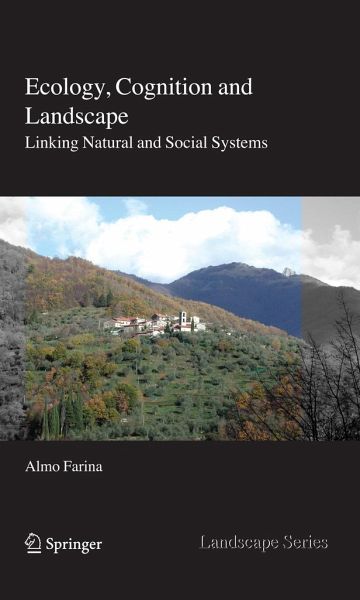
Ecology, Cognition and Landscape
Linking Natural and Social Systems

PAYBACK Punkte
19 °P sammeln!
It is more and more evident that our living system is completely disturbed by human intrusion. Such intrusion affects the functioning of entire systems in ways we do not yet fully understand. We use paradigms such as the disturbance to cover large and deep gaps in our scienti?c knowledge. Human ecology is an uncertain terrain for anthropologists, geographers, and ecologists and rarely is expanded to include the social and economic realms. The integration of different disciplines and the application of their many paradigms to problems of environmental complexity remains a distant goal despite t...
It is more and more evident that our living system is completely disturbed by human intrusion. Such intrusion affects the functioning of entire systems in ways we do not yet fully understand. We use paradigms such as the disturbance to cover large and deep gaps in our scienti?c knowledge. Human ecology is an uncertain terrain for anthropologists, geographers, and ecologists and rarely is expanded to include the social and economic realms. The integration of different disciplines and the application of their many paradigms to problems of environmental complexity remains a distant goal despite the many efforts that have been made to achieve it. Philosophical and semantic barriers are erected when such integration is pursued by pioneering scientists. Recently, evolutionary ecology has shown great interest in the spatial processes well described by the emerging discipline of landscape ecology. But this interest takes the form of pure curiosity or at worst, of skepticism toward the real capacity of landscape ecology to contribute to the advancement of ecological science. The past two centuries have been characterized by huge changes occurring in the entire ecosphere. Global changes are the effects of human intervention at a planetary scale, with consequent degradation of the environment creating an e- logical debt for future generations. On the other side of the issue, new technologies have improved the welfare of billions of people and have given hope to many other billions that they may also see such improvement in the near future.













